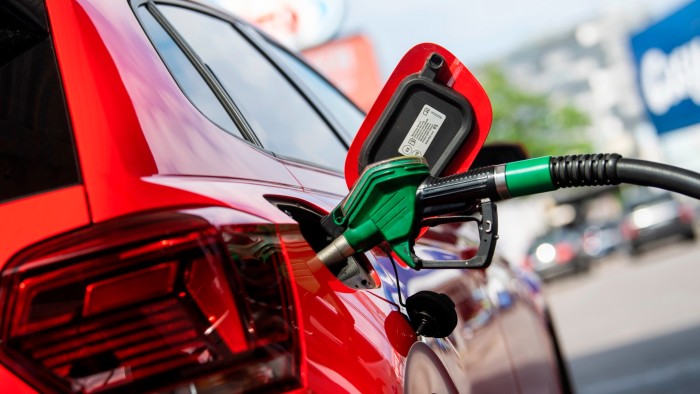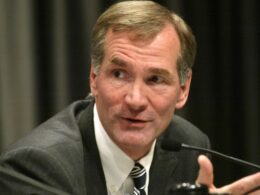Stay informed with free updates
Simply sign up to the Electric vehicles myFT Digest — delivered directly to your inbox.
The EU should scrap its total ban on selling new cars with combustion engines after 2035 to help preserve its vehicle industry, the leader of the biggest political group in the European parliament has said.
Manfred Weber, who heads the European People’s party of Commission president Ursula von der Leyen, told the Financial Times that people should be able to buy petrol and diesel cars as long as the carbon emitted is offset.
“I use a classical combustion engine, with classical fuel, but then pay for storing CO₂ in the soil — probably that is a business model for the future,” he said.
Other options could include hybrids and range extenders, he said.
His intervention comes as the EU debates the future of its 2035 ban on new combustion engines given the turmoil in the automotive industry. Several major European carmakers and car part suppliers including Volkswagen and Bosch announced thousands of job cuts last year as they struggled with rising costs and competition from cheap Chinese imports.
US imports of cars have meanwhile been subjected to 25 per cent tariffs by the Trump administration.
The UK watered down its own electric vehicle targets earlier this month, lowering punitive fines to support the car industry. While the 2030 phaseout date for new petrol and diesel cars remains in place, the government will now allow manufacturers to sell full hybrid and plug-in hybrid vehicles until 2035.
Acea, the European car industry body, has estimated that €67bn worth of automotive exports, based on 2024 numbers, will be impacted by the US levies.
After heavy lobbying from the industry, Brussels in March granted carmakers a small reprieve from stricter emissions targets by averaging them out over a three-year period to 2027, but the 2035 ban still stands.
Wopke Hoekstra, the EU’s EPP climate commissioner, has repeatedly underscored the bloc’s commitment to the 2035 law. It is due to be reviewed in 2026 but Brussels has promised to “accelerate” the work under pressure from carmakers and member states such as Germany and Italy, which are pushing for exceptions for alternative fuels made from renewable sources.
The recent German government coalition agreement also focused on carbon removals and credits as a way to meet wider EU climate targets.
But it committed to the 2035 target which allows only combustion engines powered by renewably generated “e-fuels”.
A senior EU official said that including carbon offsets as a reason for exemption or allowing hybrids and range-extenders were “exotic” options that would be “highly unlikely”.
Slow sales of electric vehicles in the EU have already picked up in the first two months of this year, increasing 28.4 per cent compared to the same period in 2024, according to figures from Acea.
In Germany, Weber’s home country, new electric vehicle registrations were up 41 per cent year-on-year in January and February, Acea said.
Weber said that the EPP wanted “to show the world that you can have economic growth together with ecological responsibility. And on the other hand, we have to do this in a way that is fully technologically neutral. That is what we stand for.
“There are a lot of new technologies now,” he said, arguing that industry should be allowed to innovate as long as EU carbon reduction targets are met.
“I don’t know and I don’t care as a politician. It’s up to the business to be creative.”
Source link









